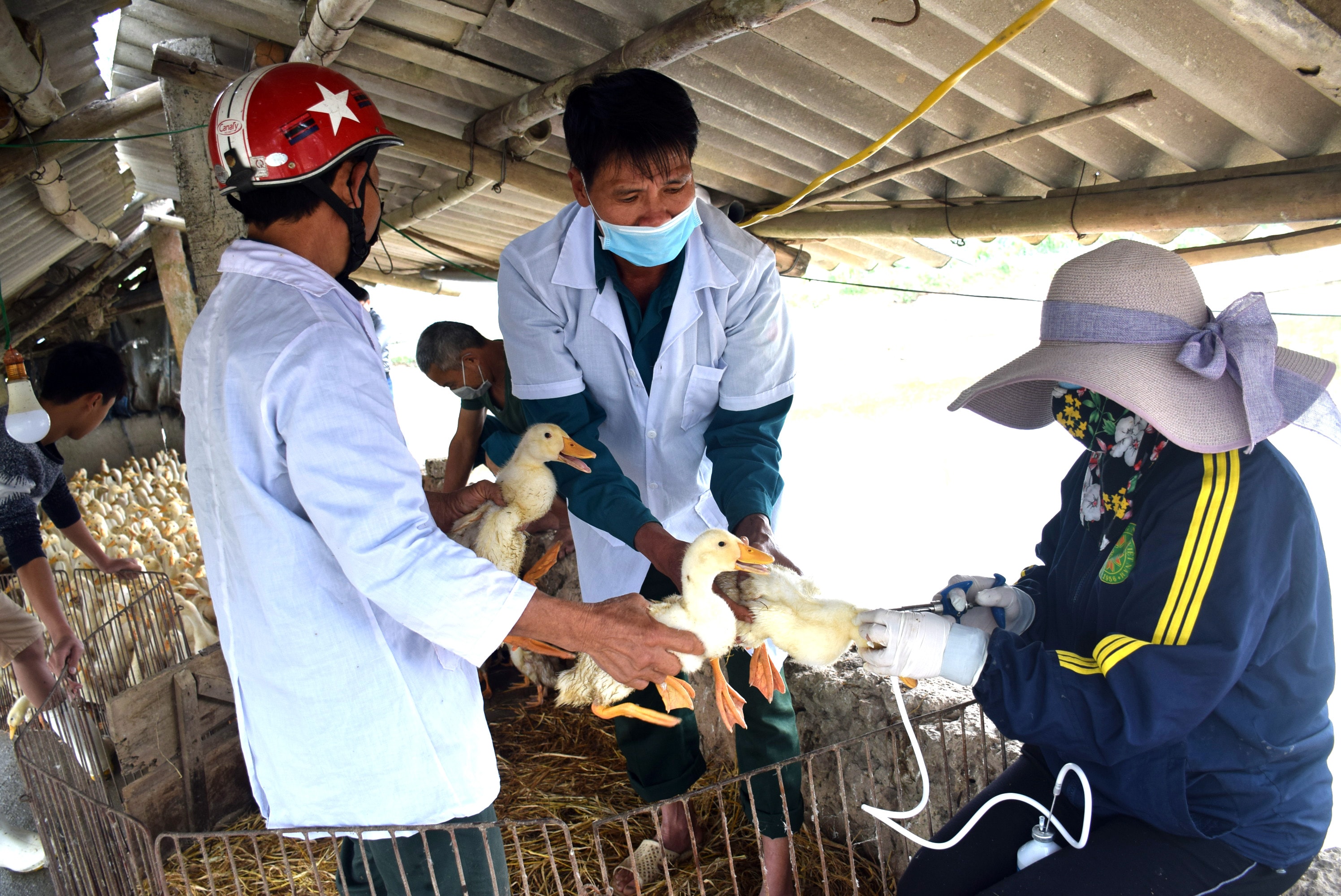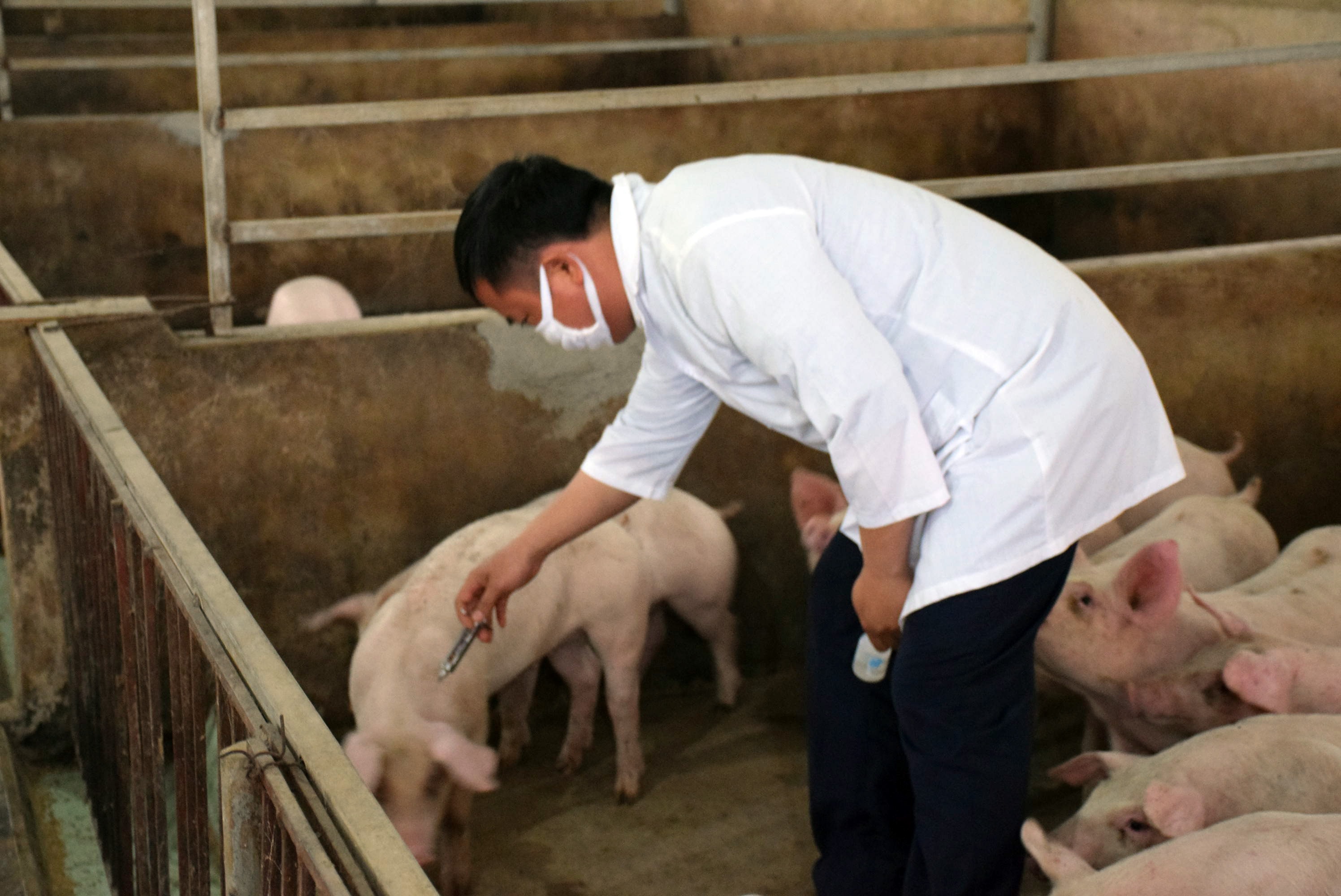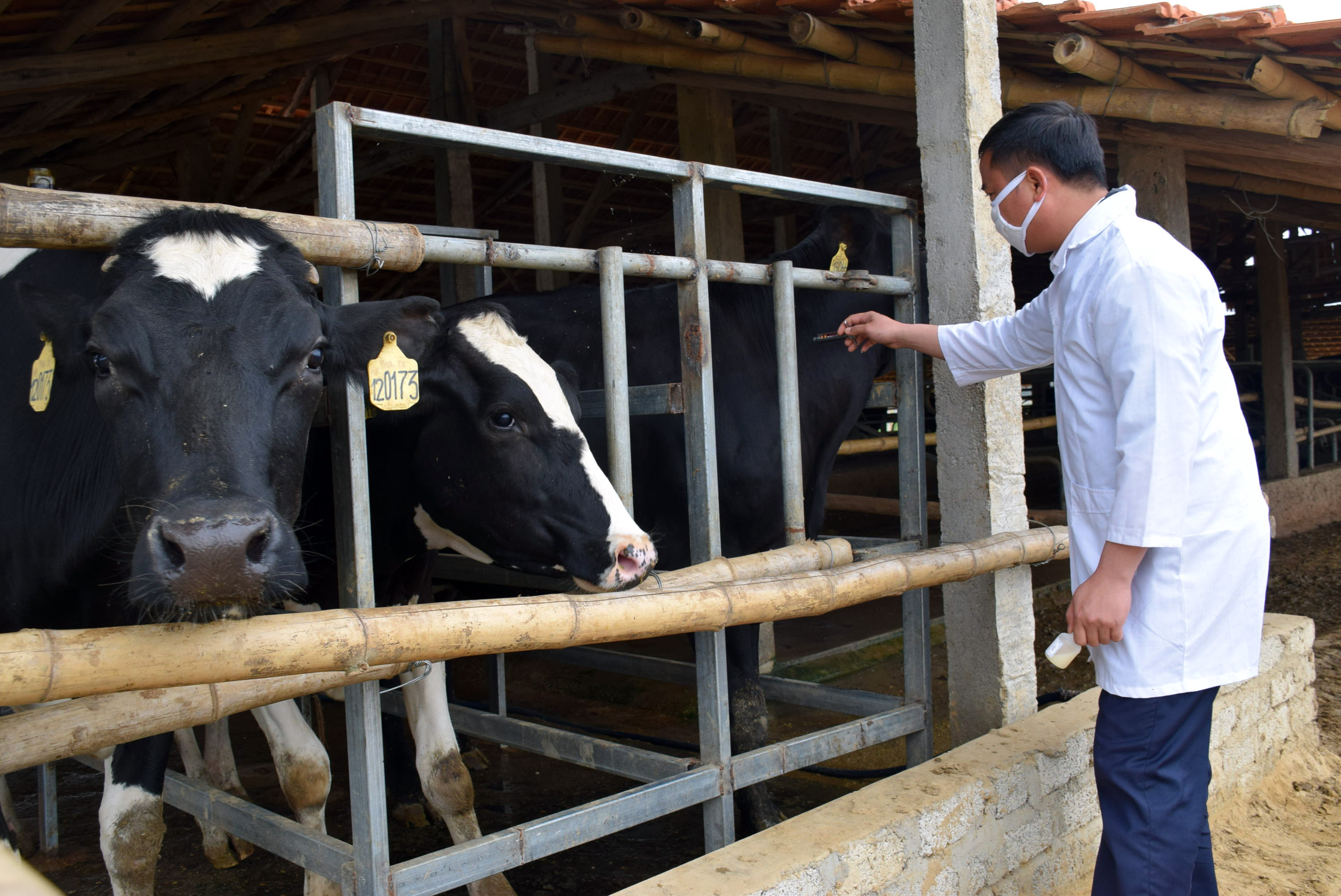Lack of veterinary staff in animal disease prevention and control in Nghe An
(Baonghean) - Since the end of 2019, the ward and commune levels no longer have officials in charge of livestock and veterinary medicine. Disease prevention and control work among livestock in Nghe An has become confusing.
 |
| Quynh Hong Commune (Quynh Luu) had to hire a veterinary team to vaccinate against avian influenza A/H5N6 in recent times. Photo: Xuan Hoang |
Quynh Hong Commune, Quynh Luu District is the locality where the first H5N6 avian influenza outbreak occurred in Nghe An in 2020. After the outbreak, the mandatory task for the locality was to destroy the infected poultry, followed by implementing epidemic prevention solutions.
However, in the process of implementing solutions to prevent and control epidemics for livestock, the locality encountered many difficulties. Chairman of Quynh Hong commune, Mr. Ho Nghia Duong said: The commune had to hire a person with veterinary expertise, who was previously in charge of the local veterinary sector, to carry out vaccination work. During the implementation process, the commune mobilized additional forces to support the capture of poultry.
However, Mr. Duong said that the locality will sometimes be passive, because people with veterinary technical expertise, if they go to work far away, will have difficulty when a sudden epidemic occurs.
 |
| During the vaccination campaign for livestock this spring, localities must hire veterinary teams to carry out the vaccination. Photo: Xuan Hoang |
Dien Thai Commune Chairman Nguyen Van Trong said: The commune assigned the task to the officers in charge of agriculture, livestock and veterinary. Because the commune's veterinary staff have retired, are now old and weak, and are not healthy enough to go for vaccinations, for this spring vaccination, the commune has planned to hire 2 people with veterinary expertise from outside the locality to organize timely vaccinations.
“Without officials in charge of animal husbandry and veterinary medicine, the locality really lacks initiative in disease prevention and control in livestock. If those with veterinary expertise go to work far away, or for some reason, they do not accept to work for the commune, the locality will be confused.”
Mr. Le The Hieu - Head of the Department of Agriculture and Rural Development of Dien Chau district said: The Department of Agriculture is advising the district People's Committee to direct communes to assign commune agricultural officials to be in charge of livestock and veterinary medicine. Accordingly, communes are currently reviewing and assigning agricultural officials to be in charge of livestock and veterinary medicine instead of the previous veterinary staff. For the upcoming spring vaccination, communes must hire veterinary staff in the commune to carry out the work.
 |
| Commune-level veterinary teams play a role in detecting and handling any disease outbreaks in livestock herds in the commune. Photo: Xuan Hoang |
Faced with the concerns and confusion of localities due to the lack of veterinary staff at the grassroots level, Mr. Nguyen Van Lap - Deputy Director of the Department of Agriculture and Rural Development said that the commune-level veterinary staff clearly plays a role in the prevention and control of epidemics in livestock: Monitoring and reporting epidemics at the grassroots level to local authorities, from which the higher-level veterinary agency can grasp the epidemic situation in livestock in a timely manner at the grassroots level. However, according to State regulations, the commune level does not have veterinary staff, so the optimal solution in the prevention and control of epidemics in livestock at the grassroots level is that districts, towns and cities must direct the commune-level authorities to review the specialized team at the commune level to assign them to concurrently perform the function of monitoring the livestock and veterinary fields.
Every year, the Department of Agriculture and Rural Development monitors the activities of the staff in charge of livestock and veterinary medicine at the commune level. If they do not meet the professional requirements, the Department will organize professional training so that they can grasp and monitor more closely. For the work of preventing and fighting sudden epidemics, or vaccination according to the annual plan, localities must be responsible for hiring or contracting with a team of veterinary experts in the commune to carry out the work.

